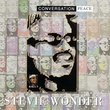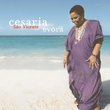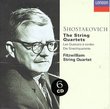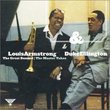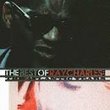| All Artists: Ravi Shankar, Yehudi Menuhin Title: West Meets East: The Historic Shankar Menuhin Collection Members Wishing: 1 Total Copies: 0 Label: Angel Records Original Release Date: 1/1/1967 Re-Release Date: 11/2/1999 Album Type: Original recording remastered Genres: International Music, Jazz, Pop, Classical Styles: Far East & Asia, Reggae, India & Pakistan, India Number of Discs: 1 SwapaCD Credits: 1 UPCs: 724356718029, 0077774907057, 0724356718050, 724356718043 |
Search - Ravi Shankar, Yehudi Menuhin :: West Meets East: The Historic Shankar Menuhin Collection
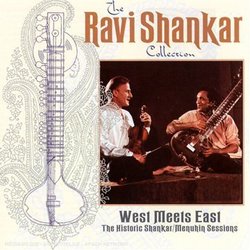 | Ravi Shankar, Yehudi Menuhin West Meets East: The Historic Shankar Menuhin Collection Genres: International Music, Jazz, Pop, Classical
Without renowned violinist Yehudi Menuhin, the West may not have found Indian classical music until decades later, much beyond the late 1960s. Thanks to Menuhin's chance meeting and later lasting friendship with the master... more » |
Larger Image |
CD DetailsSynopsis
Amazon.com Without renowned violinist Yehudi Menuhin, the West may not have found Indian classical music until decades later, much beyond the late 1960s. Thanks to Menuhin's chance meeting and later lasting friendship with the master sitarist Ravi Shankar, the West witnessed the sublimity that the merging of Western and Indian classical music could produce. The two collaborated in key performances during the late 1960s and mid-1970s, the highlights of which are captured here on West Meets East. In an incredible, interwoven dance between violin and sitar, Shankar and Menuhin spin a new yarn from the wool of ancient and rare Indian ragas, capturing the ecstasy of Hindustani praise while spontaneously bringing forth their own voices in the music. Menuhin's violin sings in beautiful sadness alongside Shankar's twanging sitar amid the droning of tanpura and occasional tabla rhythms. It's as if the two greats are playing a game of tag, taking the other's notes and stretching them into their own inspired shapes while creating a timeless music where love and respect swirl up like blessed smoke. --Karen H. Hugg Similarly Requested CDs
|
Member CD ReviewsReviewed on 6/12/2015... I love anything from Ravi Shankar. This collaboration with Yehudi Menuhin is, of course, different. As the title suggests, classical Indian music comes together with Western-style melodies. Different from ragas, but no less beautiful.
CD ReviewsI completely disagree-- This CD is amazing Carl A Jacobson | Manchester, NH United States | 11/29/1999 (5 out of 5 stars) "I love this album. My dad made me a tape of this from his vinyl when I was 12 years old, and it completely expanded my musical horizons. I'm 27 now and I still listen to it at least once a month. The interplay between Yehudi & Ravi is breathtaking, the improvisation is top notch, and the technique is astounding. I'm so excited this has been reissued on CD because my dog ate the tape last week, even dogs like this album!" Like Discovering a New Planet in the Musical Solar System For Two Cents Plain | Brooklyn, New York United States | 12/16/2004 (5 out of 5 stars) "I heard this music as a teenager, when it first appeared in the 60s, and it was my entry into Indian and other Far Eastern musics. Only recently, I bought it again in CD format, and began to reminisce. Now it sounds very different to me. Forty years ago, it was the sound of the sitar that captured my mind and heart. I had grown up listening to and playing (on the cello) classical music, and then heard Duke Ellington and Charlie Mingus and turned to jazz. Indian music was a mind-blower! Now I hear Yehudi Menuhin in a different light: the tremendous emotional depth and courage, the bittersweet Jewish pathos and mysticism, the intense psychic electricity that he brings to the duet. And I hear (or at least I imagine hearing) Pandit Ravi Shankar responding with equally intense interest in what Menuhin is saying, with equal musical respect. The result should NOT be judged in terms of Western classical music or Indian classical music (as the late master sitarist Nikhil Banerjee mistakenly did). It is something new -- a meeting of worlds, a meeting of minds, and as such it transcends the traditions these two consummate masters represent."
|

 Track Listings (7) - Disc #1
Track Listings (7) - Disc #1
